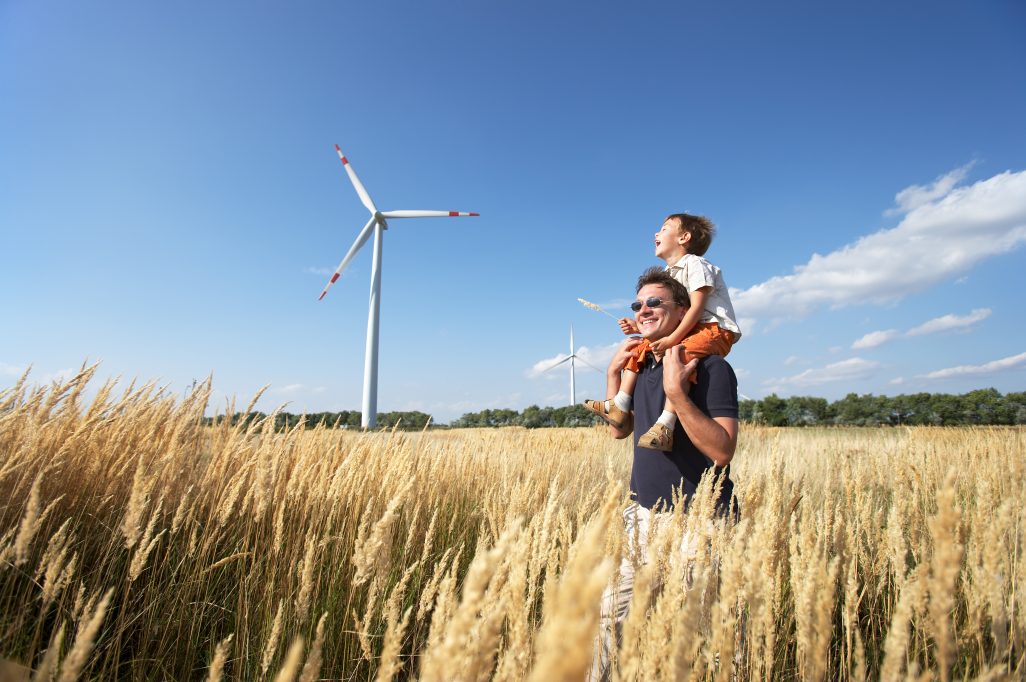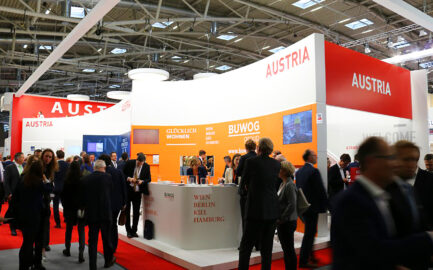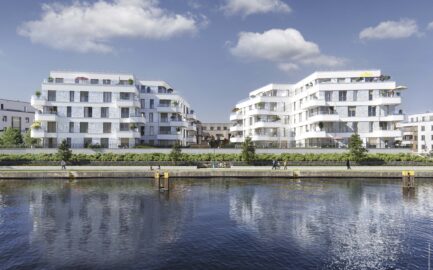Interview with Dr Ulrich Streibl, member of the board of oekostrom AG
BUWOG has been using eco-electricity from oekostrom AG since 1 January 2021. To what extent is the carbon footprint improving because of it?
In contrast to burning fossil fuels, generating eco-electricity is CO2-neutral. Switching to green electricity from oekostrom AG means the payment of electricity bills only finances clean power plants with high environmental standards in Austria, it promotes the expansion of renewable energy sources and it makes the electricity supply climate friendly.
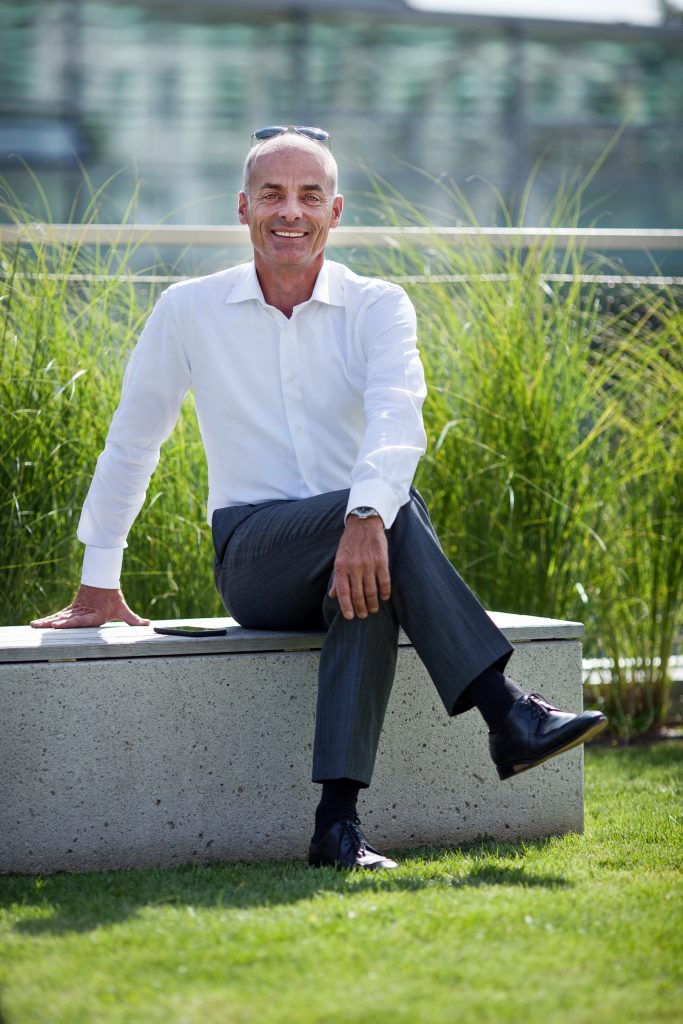
What is eco-electricity generated from?
100% of eco-electricity is generated from environmentally-friendly, renewable energy sources. These include water, wind, solar and biomass. As a leading and independent supplier of eco-electricity, we obtain our electricity from more than 1,500 wind turbines, small hydropower plants as well as photovoltaic and biogas plants. We guarantee an electricity supply that is free of energy sources such as coal, gas and nuclear power. The generation of eco-electricity from wind power, photovoltaics and hydropower does not emit any greenhouse gases that are harmful to the climate.
How widespread is eco-electricity in Austria at present?
In no other EU country is the share of renewables in generating electricity as high as in Austria because, fortunately, we have exceptionally favourable opportunities for hydropower. Today, 70 percent of electricity in Austria is already generated from renewable energy sources. The Austrian government agenda envisages that the remaining 30 percent is to come almost entirely from additional wind power and photovoltaic plants.
Who defines what eco-electricity is and can be?
The government regulator E-Control is entrusted with the supervision of electricity labelling and checks all suppliers that supply customers in Austria. The classification of individual energy sources means consumers have the opportunity to evaluate the energy supplied on the basis of qualitative characteristics.
oekostrom AG’s electricity mix does not include any certificates from international power plants. We guarantee that 100% of our supply of electricity is from renewable energy sources originating in Austria. We have all electricity purchases and deliveries regularly audited by the independent certification organisation TÜV AUSTRIA. In addition, our oekostrom future and oekostrom green business tariffs also comply with the strict guidelines of the Austrian eco-label UZ 46 “Green Electricity” from the Federal Ministry for Climate Action and the Consumer Information Association (VKI).
When choosing my electricity supplier and my energy, how do I know it’s a transparent ecological product and not greenwashing?
Numerous electricity suppliers now offer eco-electricity tariffs, but not everyone supplies “genuine” eco-electricity, so it’s worthwhile to take a closer look at the respective supplier. Many are subsidiaries of conventional suppliers that earn their money from nuclear or coal-fired power plants and invest little in the expansion of renewable energy sources. They purchase international certificates and re-label nuclear and coal-fired electricity as “green electricity”. Genuine eco-electricity providers either produce the eco-electricity themselves or purchase the electrical energy together with the relevant guarantees of origin. This means that the entire chain from producer to consumer can be clearly traced.
The four most important criteria for “genuine” eco-electricity suppliers are the company’s independence from nuclear and coal production, its own renewable production plants and their continual development, direct electricity purchase agreements with producers, and a separate balance group, i.e. a registered group of production plants and customers with which a green electricity supply can be guaranteed.
How can I save on electricity in my home most effectively and thus help protect the climate?
Besides switching to eco-electricity, efficient and economical use of energy is the most important step towards a sustainable energy future – because the cleanest kilowatt hour is the one that hasn’t been consumed at all. Concrete tips for saving energy effectively include, for example:
- Correctly regulate the room temperature: In living rooms, the room temperature should be around 20-21°C, in the bedroom the ideal room temperature is 16-18°C, and in the bathroom and children’s room it’s 22-23°C. As a general rule, every degree less saves about 6 percent in heating costs.
- Use energy-saving programmes (e.g. for the dishwasher).
- Install an efficient heating pump.
- Install thermostatic valves on the radiators.
- Set a timer for WLAN routers and switch off devices that are on stand-by.
- And if possible: Switch to an electric car
More tips for the conscious use of energy can be found on our website.
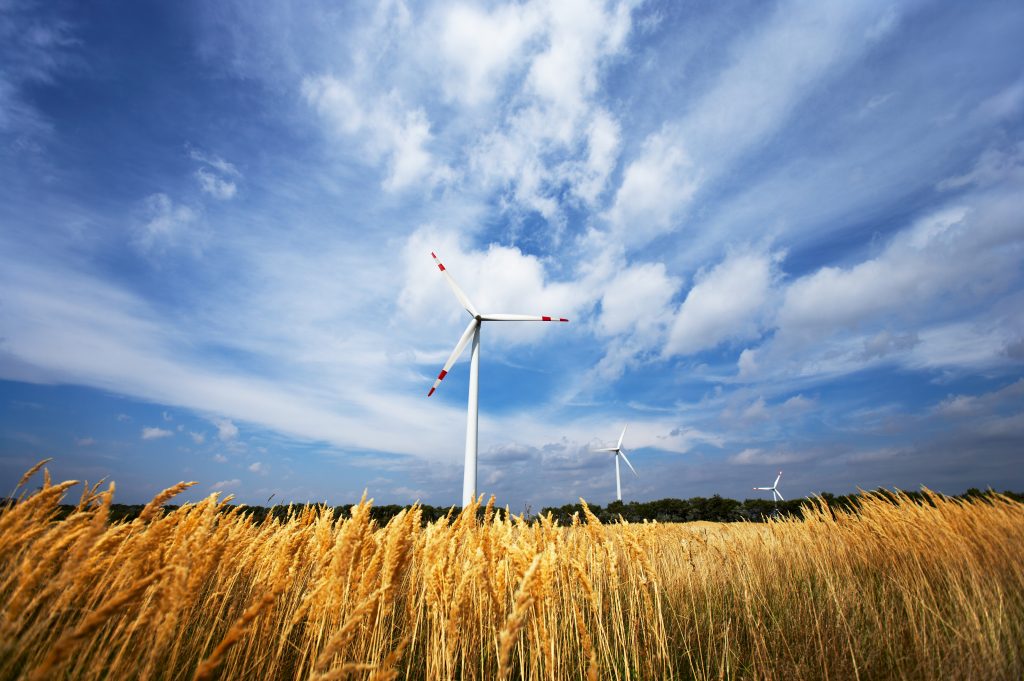
What are the renewable energy sources of the future and where will our electricity come from?
If we take the Paris Agreement seriously, we shouldn’t release any more CO2 into the atmosphere by 2050. To even keep global warming below 1.5 degrees, we have just ten more years. Nuclear power isn’t a permissible path to a decarbonised society because it is expensive, dangerous and, moreover, quite CO2-intensive along the entire uranium supply chain. Coal is the number one climate killer; it has to disappear from the scene as soon as possible. The generation of eco-electricity is CO2-neutral. That means eco-electricity is an integral part of a sustainable energy supply and is considered an important pillar of a sustainable energy policy. So sooner or later our energy will have to be generated from the renewable energy sources of wind, water and solar.
Is eco-electricity more expensive than “normal” electricity?
Eco-electricity is usually not much more expensive than conventional electricity. We offer our customers high-quality electricity at a competitive price. Our tariff calculator helps compare the costs.
E-cars and e-bikes are on the advance, but is this sustainable mobility when conventional electricity is used?
Electric vehicles are climate-friendly; they don’t produce any emissions. However, the critical factor is always how electricity as a “fuel” is produced and the source it comes from. Electromobility only fulfils its claim of protecting the climate if the share of renewable energy in the transport sector is continuously expanded. E-mobility, which relies on electricity from renewable energy sources such as wind, water, photovoltaics and biomass, is a promising alternative for increasing independence from fossil fuels in transport.
Where will we be in ten years? Will eco-electricity become the standard?
A green-energy future is one of the biggest drivers on the path to a renewable world that’s better than the one we have today. I’m optimistic about the future: we will have cleaner air in metropolitan areas and fewer cars. There will be more green spaces in cities, and the natural environment with its animal and plant species will recover. From my point of view, politics can be more forceful. We absolutely need a CO2 tax, because then we’ll have less air pollution and many more green jobs with a potential for the future. We as a society should focus on what really counts – an environment in which we humans can live in joy and in health.
***
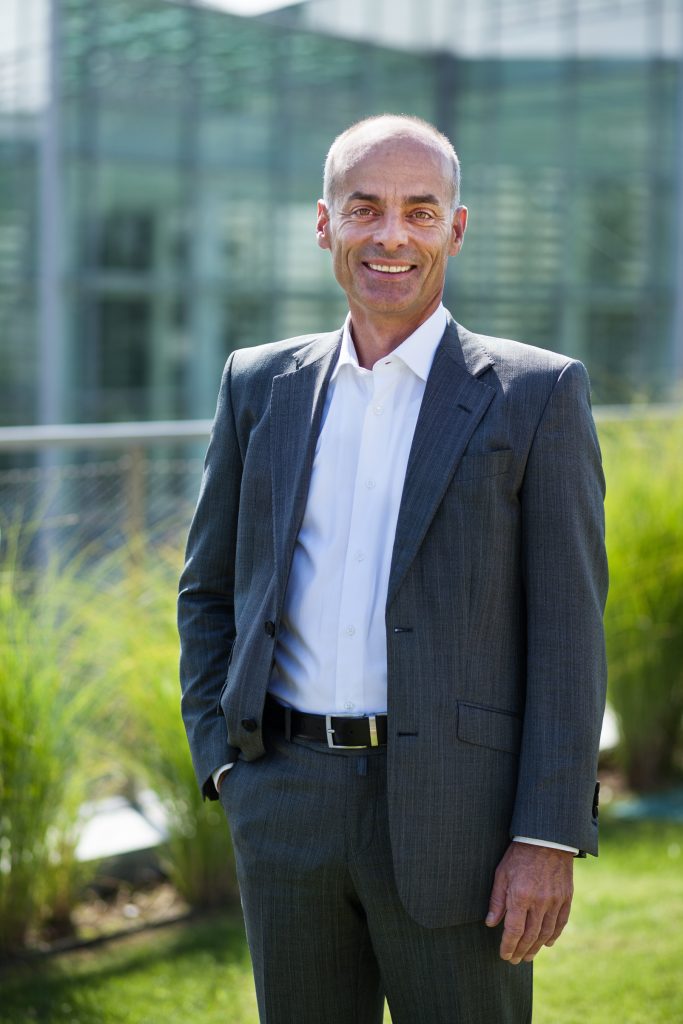
Ulrich Streibl is a board member of oekostrom AG. He is an internationally experienced manager with extensive knowledge of the energy market, broad financial and strategic expertise as well as a particular affinity for climate and environmental protection. Ulrich Streibl lives in Vienna with his wife and their three children.
oekostrom AG is a producer and supplier of electricity from renewable energy sources and is actively committed to an ecological, sustainable energy supply for heat and mobility. Founded in 1999 out of the anti-nuclear movement, the company is now the largest independent energy service provider in Austria. More information at: oekostrom.at

